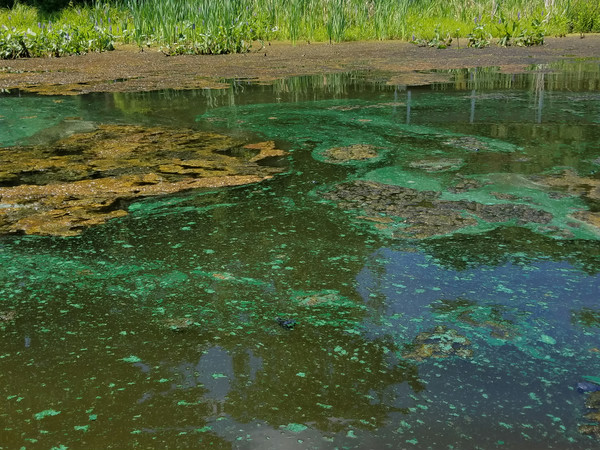A pond on your land can provide hours of entertainment when properly maintained. Whether you want to stock your pond with fish, use it for a swimming hole or just enjoy the view, a pond that’s properly cared for will enhance your landscape. When a pond is not properly maintained, it can lead to nasty smells, plentiful weeds and stagnation. Nutrient pollution is when nitrogen and phosphorus build up in a pond and act as a fertilizer, allowing algae to grow excessively. Weed clippings and other organic matter that end up in your pond are the source of nutrient pollution. With the proper care and maintenance you can prevent your pond from having nutrient pollution, allowing you to enjoy your pond for years.
Aerate
Aeration provides oxygen to the pond water, which helps with pond management in many ways. It can prevent foul odors, increase aerobic bacteria, keep algae to a minimum, protect fish and decrease insect larvae. There are two methods of pond aeration, bottom-up and surface. A bottom-up aeration system aerates water from the bottom of the pond and is the most effective way to aerate a pond. Oxygen is dissolved into the bottom of the pond, giving it plenty of time to rise and collect debris. Surface aeration is accomplished through the use of fountains. While aesthetically appealing, only the surface of the water is aerated and fountain motors can break down over time making this a less effective method of aeration.

Prevent Excess Nutrients
Bacteria and enzyme blends are natural and easy to use, but the correct blend is important. These blends consume the nitrogen and phosphorus in ponds that lead to nutrient pollution. Enzymes break down organic matter so the bacteria can absorb it. Liquid blends are better in large ponds, while dry blends can work well in small backyard ponds.
Maintenance
Regular pond maintenance is necessary for a healthy pond. Manual removal of debris, such as leaves, algae, branches and other organic matter, should be done often. There are chemical herbicides and algaecides available, but they typically make the problems in your pond worse. Stick to the natural methods of aeration and bacteria and enzyme blends for a healthier pond. If you have a fountain, regular checks of the motor should be done to assess any damage.
A well maintained pond can be a breathtaking addition to your landscaping while providing a healthy and fun activity spot for your family.




